An overview
The day will be a time of common worship, spiritual exercises, presentations and conversation. All with coffee, tea and lunch.
There will be times when you’ll be invited to work in your parish groups and times outside those groups. We anticipate times when we might break into three separate groups of lay leaders, priests, and deacons. A few exercises will involve a bit of movement in the room. For those for whom such movement is difficult we’ll seek alternative methods of involvement.
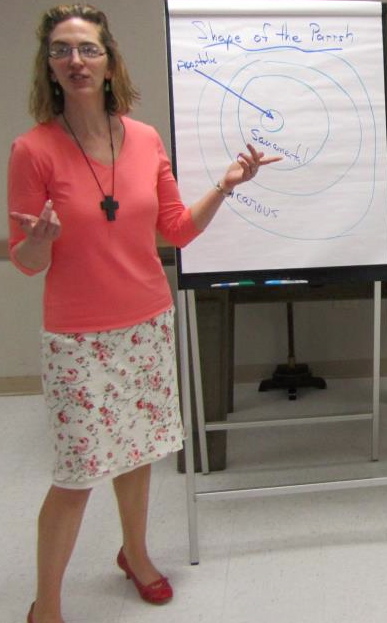 We will do several spiritual exercises during the day. Each will involve movement to stations in the room. There will also be a number of small group conversations as we reflect on the exercises. This means that the space has to be organized to allow for easy movement. So there will be no tables to sit at in the room. Please come expecting to move around in the space for at least two exercises and as we go to small groups for conversation.
We will do several spiritual exercises during the day. Each will involve movement to stations in the room. There will also be a number of small group conversations as we reflect on the exercises. This means that the space has to be organized to allow for easy movement. So there will be no tables to sit at in the room. Please come expecting to move around in the space for at least two exercises and as we go to small groups for conversation.
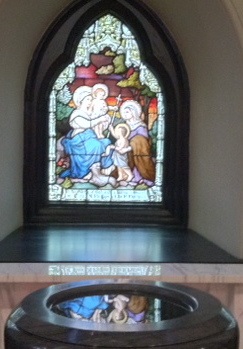
That he might fill all things
At Morning Prayer for the Saturday after Ascension Day
We'll hear - that we "are ... citizens with the saints and also members of the household of God"
Water will be blessed for use later in the day - "the water of baptism has raised us from sin into new life"
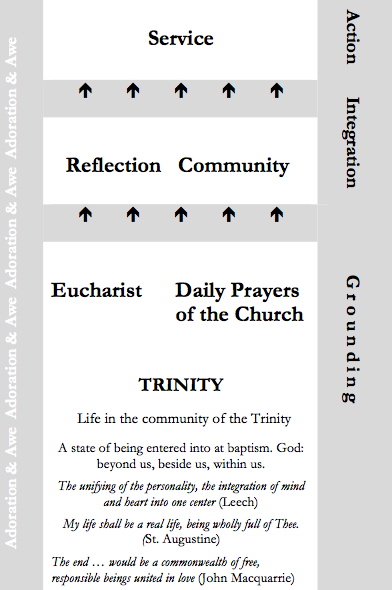
Spiritual Maps: So we may become stronger in love and faith
We'll explore the place of spiritual maps -- A map offers a system of spiritual life rather than a list of assorted practices. A useful system will provide a balance of nurture and stretching. It will include our inner life and our outer life. In such a system our inclinations and gifts are supported and allowed to flourish and the less developed parts of us are drawn out and developed. All so we may become stronger in love and faith; more resilient, with a broader mind and an enlarged heart.
Focusing on the Eucharist
The retreat will focus on the spiritual practices of the Holy Eucharist as seen within the context of the other practices of the Christian Life.
Eucharistic Practices: The Body in Worship
Use of the body is an integral part of liturgical worship. While we may easily understand the concept of sacraments as “outward and visible signs of an inward and spiritual grace,” and therefore accept the use of physical elements such as bread and wine, water and oil, our own physicality in worship can seem awkward or unnecessary. It is, though, a significant method of grounding spiritual life in the whole person—not just in the head or heart. We stand, kneel, sit. We pray silently and aloud. We pray responsively. We listen and we are silent. We sing, we eat and drink. Bringing our bodies into worship is an important and concrete connection with the Incarnation. Michelle Heyne
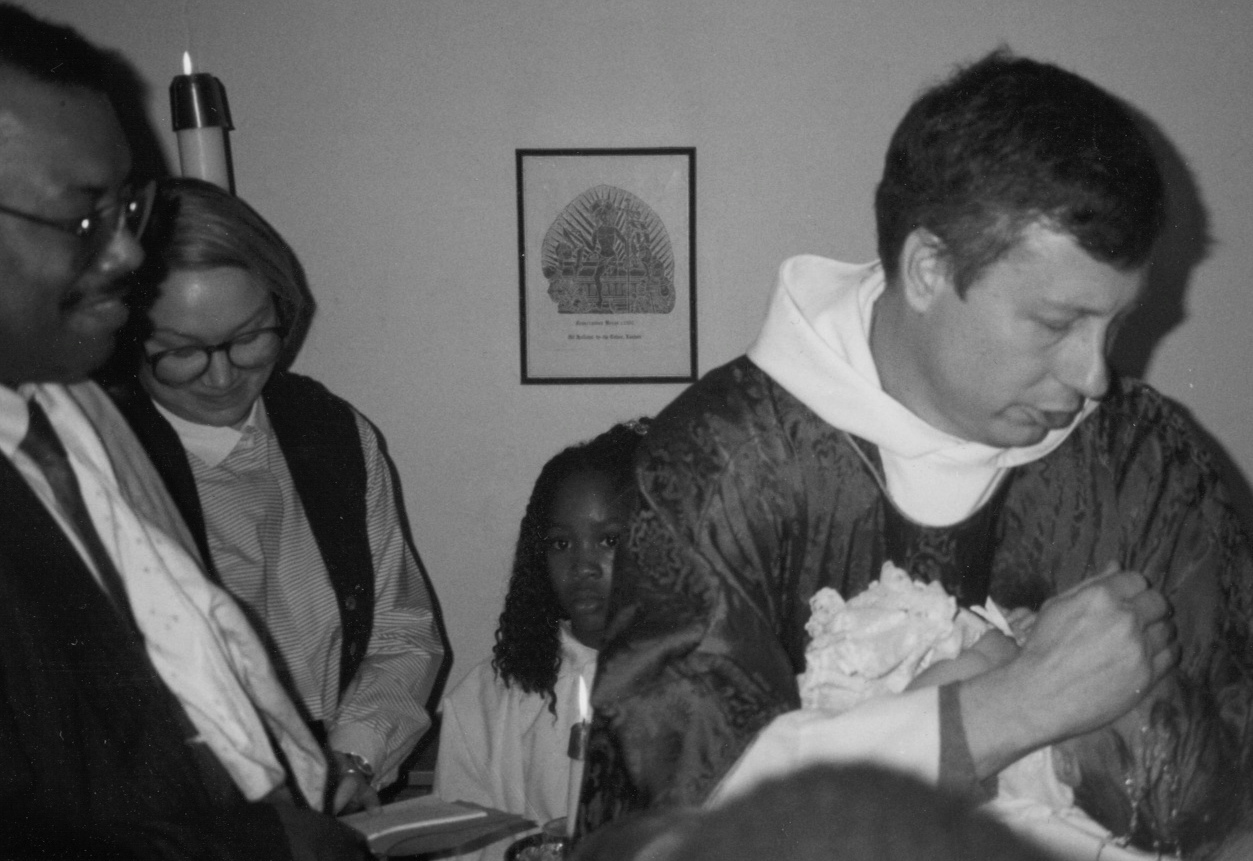
Eucharistic Practices: The Waters of Baptism
We'll recall our baptism in a spiritual exercise -- When the Church baptizes a child, that action concerns me, for that child is thereby connected to that which is my head too, and ingrafted into that body whereof l am a member … No man is an island, entire of itself; every man is a piece of the continent, a part of the main. … any man's death diminishes me, because I am involved in mankind, and therefore never send to know for whom the bell tolls; it tolls for thee. John Donne
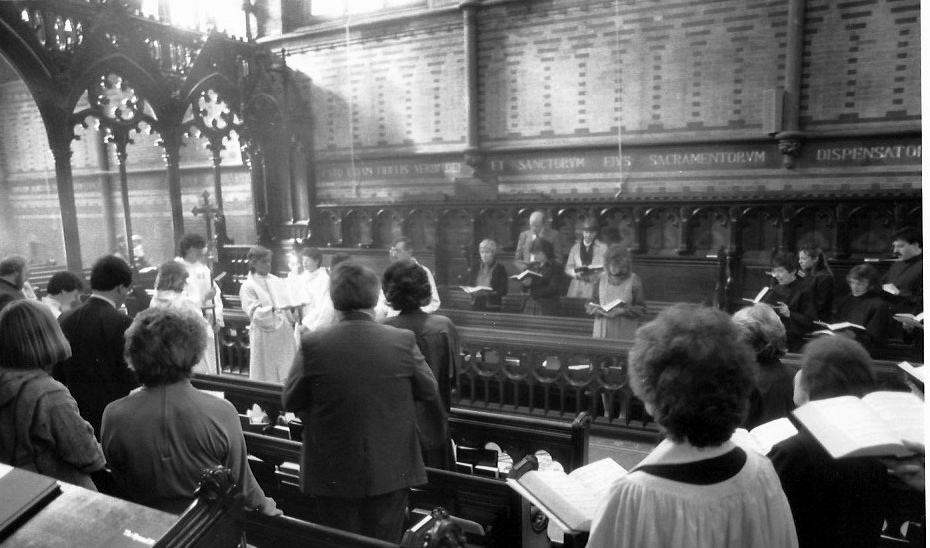
Eucharistic Practices: Engaging the Word
Stance: receptivity, openness; enacted by inner silence and stillness. The Liturgy of the Word is deeply related to a spirituality of listening. It is not about how well lectors read the scriptures, nor about how well the preacher offers the sermon (though it is of course useful if these things are done well). It is about listening. Listening is what we do to engage the Word. It is part of our tradition's emphasis on adult spirituality -- we take responsibility for shaping our spiritual life as part of the Body of Christ. Michelle Heyne & Bob Gallagher
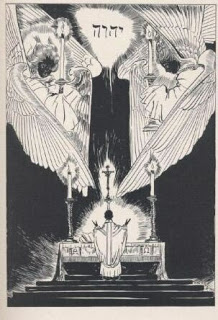
The Holy Eucharist
We'll celebrate the Eucharist -- For the fully Christian life is a Eucharistic life: that is, a natural life conformed to the pattern of Jesus, given in its wholeness to God, laid on His altar as a sacrifice of love, and consecrated, transformed by His inpouring life, to be used to give life and food to other souls. Evelyn Underhill
It is you who lie upon the altar; it is you, your very life, within the cup. Augustine of Hippo
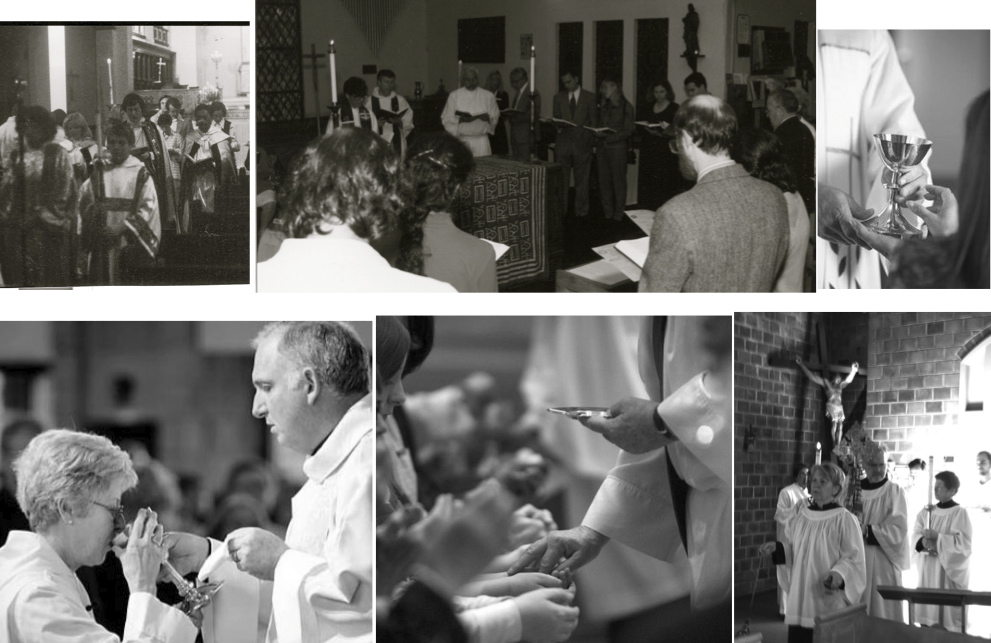
The Eucharist & Leadership
We will explore how the pattern of the Eucharist is the pattern of our leadership.
Schedule
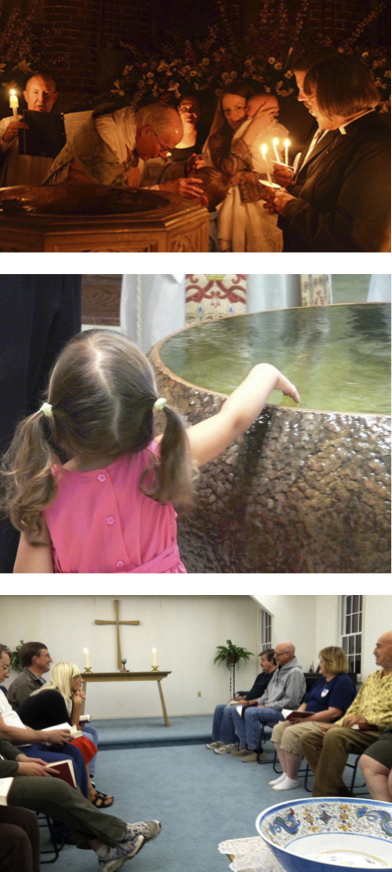
8:00 – 9:00 am Registration and Breakfast
9:00 – 9:20 am Morning Prayer with the Blessing of Water
9:20 am Welcome and Introduction
9:30 – 10:45 Session 1: Spiritual Maps
Eucharistic Practices
10:45 – 11:00am Break
11am – 12:00 Session 2: Eucharistic Practices
12:00 – 1:00pm Lunch
1:00 - 2:00 pm The Holy Eucharist
2:00 – 2:15 pm Break
2:15 – 3:45 pm Session 3: The Eucharist and Leadership
3:45 – 4:00 pm Wrap Up & Blessing